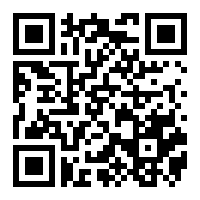The Effect of Metacognitive Ability on Learning Outcomes of Geography Education Students
DOI:
https://doi.org/10.23917/ijolae.v2i2.9257Keywords:
metacognitive abilities, learning outcomes, expo factoAbstract
The objective of this study was to analyze the effect of metacognitive ability to improve the geography learning outcomes. This research is expo facto with a quantitative approach. Data was collected from 55 students from the geography education department. Data collection methods used in this study was questionnaires and documentation. The results showed that the metacognitive abilities of students had an average value of 44.57 or that metacognitive abilities were an insufficient category. There was a significant influence of metacognitive abilities on student learning outcomes as evidenced by t count = 6.508 > t table = 1.674. The contribution of the influence of metacognitive abilities on biogeography learning outcomes was equal to 0.444 or 44.4%, while the remainder of 66.6% was influenced by other factors.
Downloads
References
Corebima, A. D. (2006). Pembelajaran Biologi yang Memberdayakan Kemampuan Berpikir Siswa. Paper presented in Pelatihan Strategi Metakognitif pada Pembelajaran Biologi untuk Guru-guru Biologi SMA, Lembaga Pengabdian Kepada Masyarakat (LPKM) UNPAR, Palangkaraya, 23 August 2006.
Danial, M. (2010). Kesadaran Metakognisi, Keterampilan Metakognisi dan Penguasaan Konsep Kimia Dasar. Jurnal Ilmu Pendidikan, Jilid 17, Nomor 3, October 2010. 225-229.
Dunning, D., Johnson, K., Ehrlinger, J., and Kruger, J. (2003) Why people fail to recognize their own incompetence. Current Directions in Psychological Science 12, 3, 83-87.
Flavell, J. H. (1979). Metacognition and cognitive monitoring: A new area of cognitive–developmental inquiry. American Psychologist, 34(10), 906.
Hopkins, D. (2011). Panduan guru: Penelitian Tindakan Kelas. Yogyakarta: Pustaka Belajar.
Kuntjojo. (2009). Kemampuan metakognitif dan Keberhasian Belajar Peserta Didik Accessed from: http://ebekunt.wordpress.com/2009/04/12/ kemampuanmetakognitif-dankeberhasilan belajar pesertadidik/.
Livingstone, J. A. (1997). Metacognition: An Overview. Accessed from: http://gse.buffalo.edu/fas/shuell/cep564/metacog.htm
Mulbar, U. (2008). Metakognisi Siswa Dalam Menyelesaikan Masalah Matematika. Available at: http//www. usmanmulbar. files. wordpress. com. Accessed on 7 July 2019.
Nugrahaningsih, T. K. (2012). Metakognisi Siswa SMA Kelas Akselerasi Dalam Memecahkan Soal Matematika, Magistra, Vol 24, No 84
Schraw, G., & Dennison, R. S. (1994). Assessing metacognitive awareness. Contemporary educational psychology, 19(4), 460-475.
Sugiyono. (2011). Metode Penelitian Kuantitatif, Kualitatif dan R&D. Bandung: ALFABETA.
Sukmadinata, N. S. (2009). Landasan Psikologi Proses Pendidikan. Bandung: PT Remaja Rosdakarya.
Tibrani, M. M. (2017). Metacognitive Awarness of Biology Education Students in Human Physiology Lecture. Jurnal Pembelajaran Sains, 1(1).
Woolfolk, A. (2010). Educational Psychology. Upper Saddle River: Pearson Education International.
YCCD. (2005). Student Learning Outcomes. Retrieved from www.mt.liu.se/edu/Bologna/LO/slo.pdf.
Downloads
Submitted
Published
Issue
Section
License
Copyright (c) 2020 Faisal Arif Setiawan, Deasy Arisanty, Karunia Puji Hastuti, Akhmad Munaya Rahman

This work is licensed under a Creative Commons Attribution 4.0 International License.












